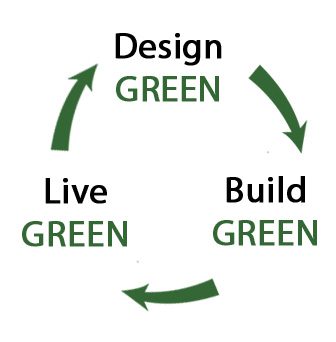In good times or bad, there is one constant: Homeownership remains the American Dream for millions of American families. And there are many reasons why, both economic and emotional.
Most Americans consider homeownership to be their single best long-term investment and a primary source of their wealth and financial security. Generations of families have counted on and used the equity in their homes for their children’s education, their own retirement and other milestone expenses.

Individual household budgets are helped by tax incentives that are designed to make owning a home more affordable. Deductions for mortgage interest and property taxes can result in thousands of dollars of tax savings, especially in the early years of the mortgage when interest makes up most of the payment. Home owners save nearly $100 billion annually on mortgage interest and property deductions alone.
And when home owners sell their primary residence, they get an enormous tax break. A couple who owns and lives in their home for two years and then decides to sell can keep up to $500,000 of the profit tax-free, and a single owner can keep $250,000.
A healthy housing industry means more jobs and a stronger U.S. economy. In fact, fully 15 percent of the U.S. economy relies on housing.
Most of the products used in home construction and remodeling are manufactured in the United States. Constructing 100 new homes creates more than 300 full-time jobs, $23.1 million in wage and business income and $8.9 million in federal, state and local tax revenue. New home owners spend money on decorations and furnishings, to enhance the landscaping and to become members of the community by patronizing local businesses and service providers.
Yet a home is so much more than an investment. In good times and in bad, the opportunity to own a home has been a cherished ideal and a source of pride, accomplishment, social stability and peace of mind.
Homeownership strengthens communities as well as families.
Home building increases the property tax base that supports local schools and communities. When a family owns their home, it is an asset that has a direct impact on their financial security and future. People are more likely to take care of things they own so they remain valuable. And a home’s value is determined by how well it is maintained as well as by the condition of the neighborhood it is located in. So home owners have incentive to spend their time and resources improving their neighborhood, even if it is just to protect the value of their investment.
Homeownership builds stronger communities, provides a solid foundation for family and personal achievement and improves the quality of life for millions of people. The Bipartisan Policy Center’s Housing Commission has said that homeownership can “produce powerful economic, social, and civic benefits that serve the individual home owner, the larger community and the nation.”
It is important to know that despite the fact that housing and homeownership policies over the last century have contributed to the growth of the middle class and helped the United States become the most dynamic economy the world has ever seen, homeownership is under attack. Policymakers are proposing radical changes, including ending the mortgage interest deduction and mandating minimum 20 percent downpayments, that would threaten the dream of homeownership for millions of Americans.
The National Association of Home Builders’ website, www.ProtectHomeownership.com, has more information about the threats to homeownership and how to take action to protect it.

